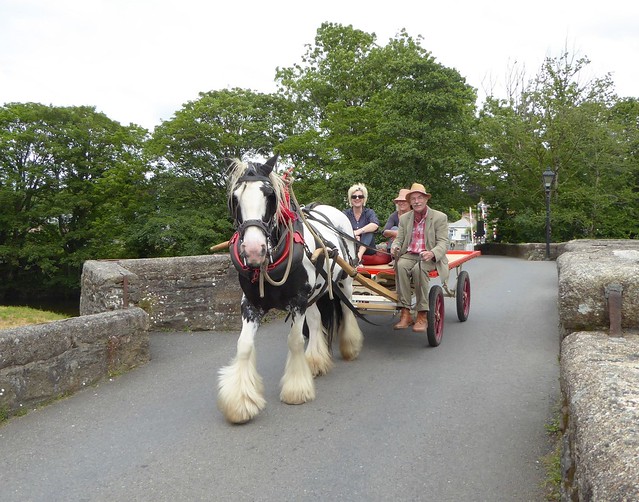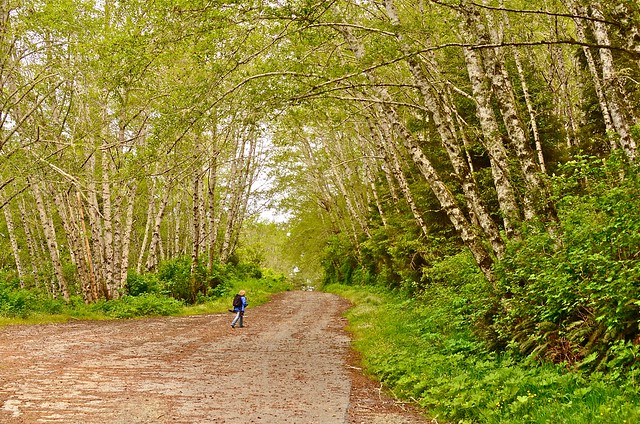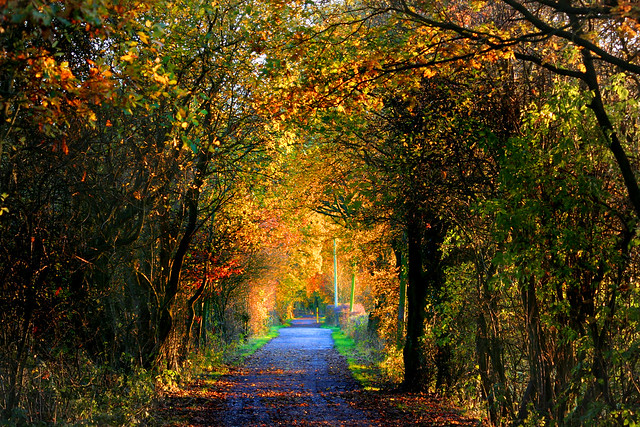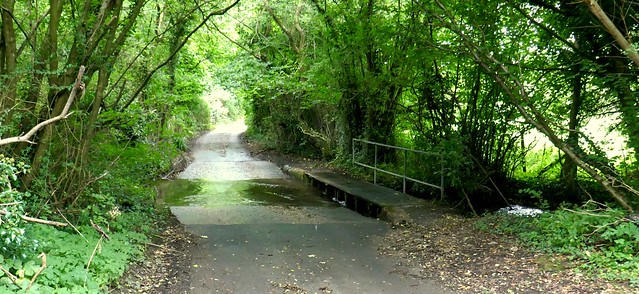Words for wagons, carts, cars and related things in Celtic languages:
| Proto-Celtic | *karros = wagon |
|---|---|
| Gaulish | *karros = wagon |
| Old Irish (Goídelc) | carr = cart, wagon |
| Middle Irish (Gaoidhealg) | carr = cart, waggon |
| Irish (Gaeilge) | carr [kɑːɾˠ / kæːɾˠ] = car carraeireacht = carting, carriage, haulage carrán = small cart carrbhealach = carriageway carrchlós = car park otharcharr = ambulance carr sleamhnáin = sledge carr róchain = swing |
| Scottish Gaelic (Gàidhlig) | càr [kar] = car, cart, raft |
| Manx (Gaelg) | carr = car, cab, van carr laadee = lorry, wagon carr oanluchkee = = hearse carr surranse = ambulance |
| Proto-Brythonic | *karr [ˈkar͈] = wagon, cart, load |
| Middle Welsh (Kymraec) | car, kar, karr = wagon, cart |
| Welsh (Cymraeg) | car [kar] = vehicle, car, sled, dray; rack, stand car a cheffyl = horse-drawn carriage car caws = cheese rack car cerdded = go-cart, child’s cart car trol = cart, wagon |
| Middle Cornish (Cernewec) | carios = cart, carriage |
| Cornish (Kernewek) | karr [karː / kær] = car karr bonk = dodgem karr ergh = snowmobile karr klavji = ambulance karr kreslu = police car karr slynk = sleigh karr stret = tram karr tan = motor-car kerrik = cart, carriage, buggy kerrik flogh = baby carriage |
| Old Breton | carr = cart |
| Middle Breton | karr = cart, car, coach, carriage |
| Breton (Brezhoneg) | karr = car, coach, carriage, trailer, vehicle karr-ar-argad = tank karr-a-dan = automobile, locomotive karr-ar-marv = hearse karr-chalbotat = lorry, truck |
Etymology: from the Proto-Indo-European *ḱr̥sós (vehicle), from *ḱers- (to run) [source].
The Gaulish word *karros was borrowed into Latin as carrus (wagon, cart, cartload), which became carro (wagon, cart, van, lorry, truck) in Italian; carro (cart, car, bus) in Spanish; car (bus, coach) in French; car, carriage and chariot in English; and similar words in other languages [source].
Words from the same PIE root include horse in English, hors (mare, female foal, frivolous woman) in Norwegian (Nynorsk), hross (horse) in Icelandic, and currus (chariot, car, wagon) in Latin [source].
| Proto-Celtic | *karbantos = (war) chariot, wagon |
|---|---|
| Gaulish | *karbanton, carbantos = chariot, wagon |
| Old Irish (Goídelc) | carpat [ˈkarbad] = chariot cairptech = chariot owner, chariot-fighter |
| Middle Irish (Gaoidhealg) | carpat = war-chariot, car, waggon carpaitniadh = chariot-fighter carpat saer/ailtire = chariot-builder |
| Irish (Gaeilge) | carbad [ˈkaɾˠəbˠəd̪ˠ] = chariot carbadóir = charioteer fo-charbad = undercarriage |
| Scottish Gaelic (Gàidhlig) | carbad [karabad] = chariot, coach, carriage, wagon, vehicle, bier, jaw(bone) carbadach = abounding in chariots, coaches, etc carbadachd = (act of) driving a chariot carbadair = charioteer, cab driver, coachman, teamster carbad-eich = horse carriage carbad-eiridinn = ambulance carbad-fànais = spacecraft carbad-mharbh = hearse carbad-smàlaidh = fire engine carbad-smùide = steam locomotive carbad-suain = sleeping coach |
| Manx (Gaelg) | carbyd = bus, coach, vehicle, bier, hearse carbyd bee = dining car, restaurant car carbyd clienney = pram, baby carriage carbyd-lheeys = ambulance carbyd-mooghee = fire engine |
| Proto-Brythonic | *karr [ˈkar͈] = wagon, cart, load |
| Middle Welsh (Kymraec) | kerbyt = wagon, cart |
| Welsh (Cymraeg) | cerbyd [ˈkɛrbɨ̞d / ˈkɛrbɪd] = car, carriage, chariot, wagon, coach; clumsy fellow, bungler cerbyd agored = open carriage, landau cerbyd cyflog = hackney-carriage, stage-coach cerbyd rhyfel = war chariot cerbydan = small carriage, chaise, gig, cab cerbydol = vehicular cerbydwr = wagoner, coachman, charioteer |
| Old Cornish (Cernewec) | cerpit = chariot, wagon |
| Old Breton | cerpit = chariot, wagon |
| Breton (Brezhoneg) | karbed = vehicle karbed-tan = motor vehicle karr tredan = electric vehicle |
Etymology: possibly related to the Proto-Celtic word *korbos (wagon, basket) [source]. The Brytonic words were borrowed from Old Irish [source].
The Gaulish word carbantos was borrowed into Latin as carpentum (carriage, chariot, wagon, cart), which became charpente (framework, structure) in French [source].
| Proto-Celtic | *wegnos = wagon, cart *wegnyā = wagon |
|---|---|
| Old Irish (Goídelc) | fén [fʲeːn] = wagon, cart |
| Middle Irish (Gaoidhealg) | fén = waggon, cart, conveyance of some kind |
| Irish (Gaeilge) | féan [fʲeːnˠ] = wagon, wain, cart |
| Scottish Gaelic (Gàidhlig) | feun [fian] = cart, wain, chariot feunair = waggoner feun-cogaidh = war chariot feun-mòine = peat cart |
| Manx (Gaelg) | fainagh = carriage, chariot, coach fainagh cabbil = horsedrawn coach fainagh-bee = restaurant car |
| Proto-Brythonic | *gweɨn = wagon, cart |
Etymology: from the Proto-Indo-European *weǵʰ- (to go, transport) [source]. English words from same PIE root include wagon, weigh, way wain (a four-wheeled cart for hauling loads, usually pulled by horses or oxen), vehicle and vector [source].
There appear to be no descendents of the Proto-Brytonic word *gweɨn in the Brythonic languages, but the Welsh word certwain (cart, wagon, wain) is indirectly related. It comes from the Old English crætwǽn (chariot, wain – lit.”cart-wain”) [source], from cræt / ceart (cart, wagon, chariot), from the PIE *krattijô (basket) [source], and wæġn (wagon, carriage) [source].
| Proto-Celtic | *bennā, *bondyo = bracelet |
|---|---|
| Gaulish | *benna = carriage |
| Old Irish (Goídelc) | buinne [ˈbun͈ʲe] = circlet, (arm-)ring, bracelet, wattle, wickerwork |
| Middle Irish (Gaoidhealg) | buinne = circlet, (arm-)ring, bracelet, wattle, wickerwork |
| Irish (Gaeilge) | buinne [ˈbˠɪn̠ʲə] = course of interwoven rods, wale; hoop; ridge; welt (of shoe); flange (of vessel); band, bracelet; shroud |
| Middle Welsh (Kymraec) | benn, ben = cart, wagon, carriage, wain benneit = cart-load, wain-load |
| Welsh (Cymraeg) | ben = cart, wagon bennaid = cart-load, wain-load |
Etymology: from the Proto-Indo-European *bʰendʰ- (to bind, bond). Words from the same Proto-Celtic root, via the Latin benna (a kind of carriage), include benne (bin, skip, dump truck, barrow, cable car) in French, bin in English, and benna (bucket, grab) in Italian [source].
English words from the same PIE root include band, bandage, bandana, bend, bind, bond, bonnet, bundle, funicular, tulip and turban [source].
Words marked with a * are reconstructions.
Sources: Wiktionary, Am Faclair Beag, Online Manx Dictionary, Teanglann.ie, eDIL – Electronic Dictionary of the Irish Language, In Dúil Bélrai English – Old Irish glossary, Geiriadur Prifysgol Cymru, Gerlyver Kernewek, Gerlyvyr Cernewec, Dictionaire Favereau, TermOfis, Le dictionnaire diachronique du breton, Geriafurch, English – ProtoCeltic WordList (PDF), Etymological Dictionary Of Proto Celtic











